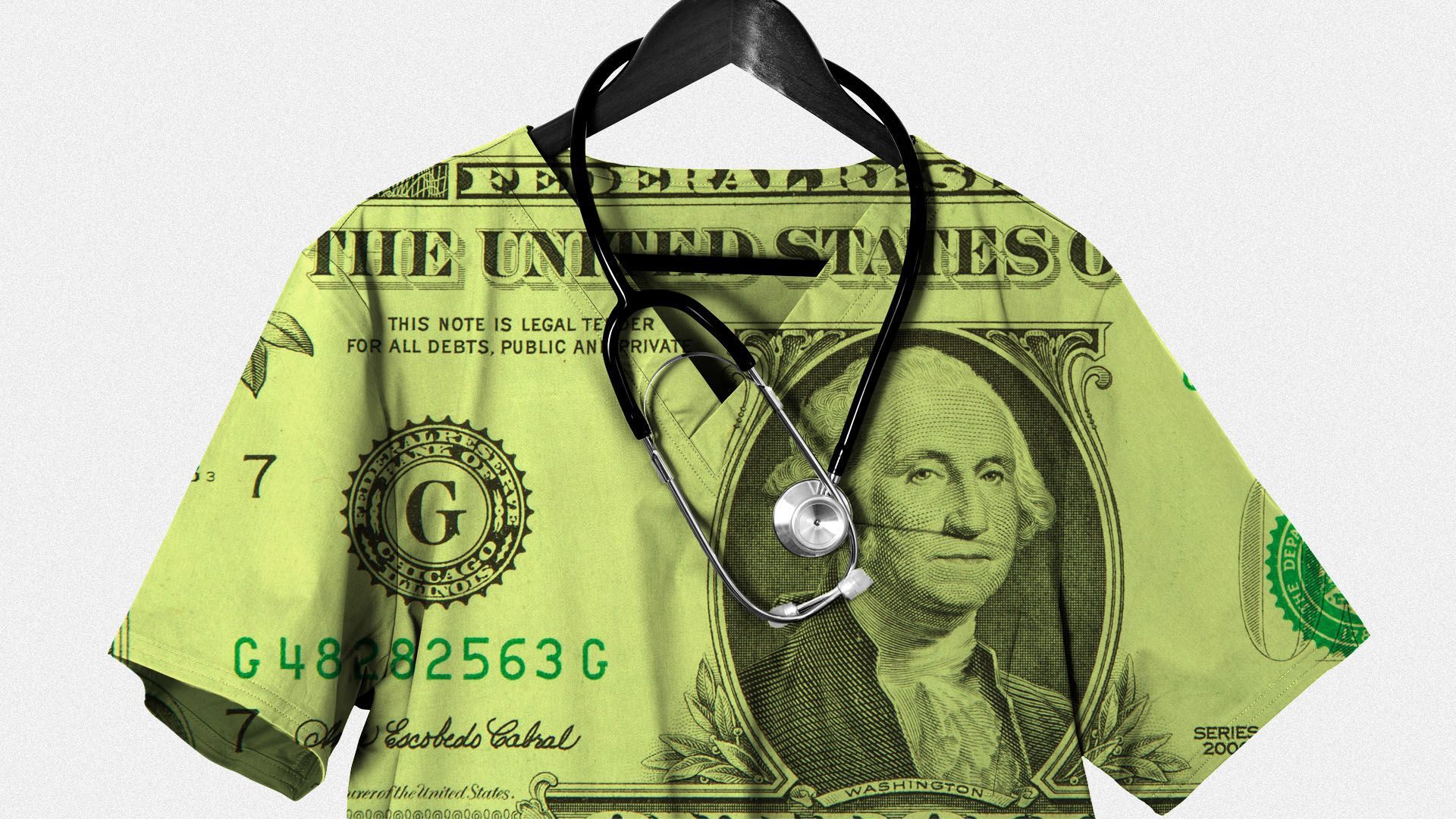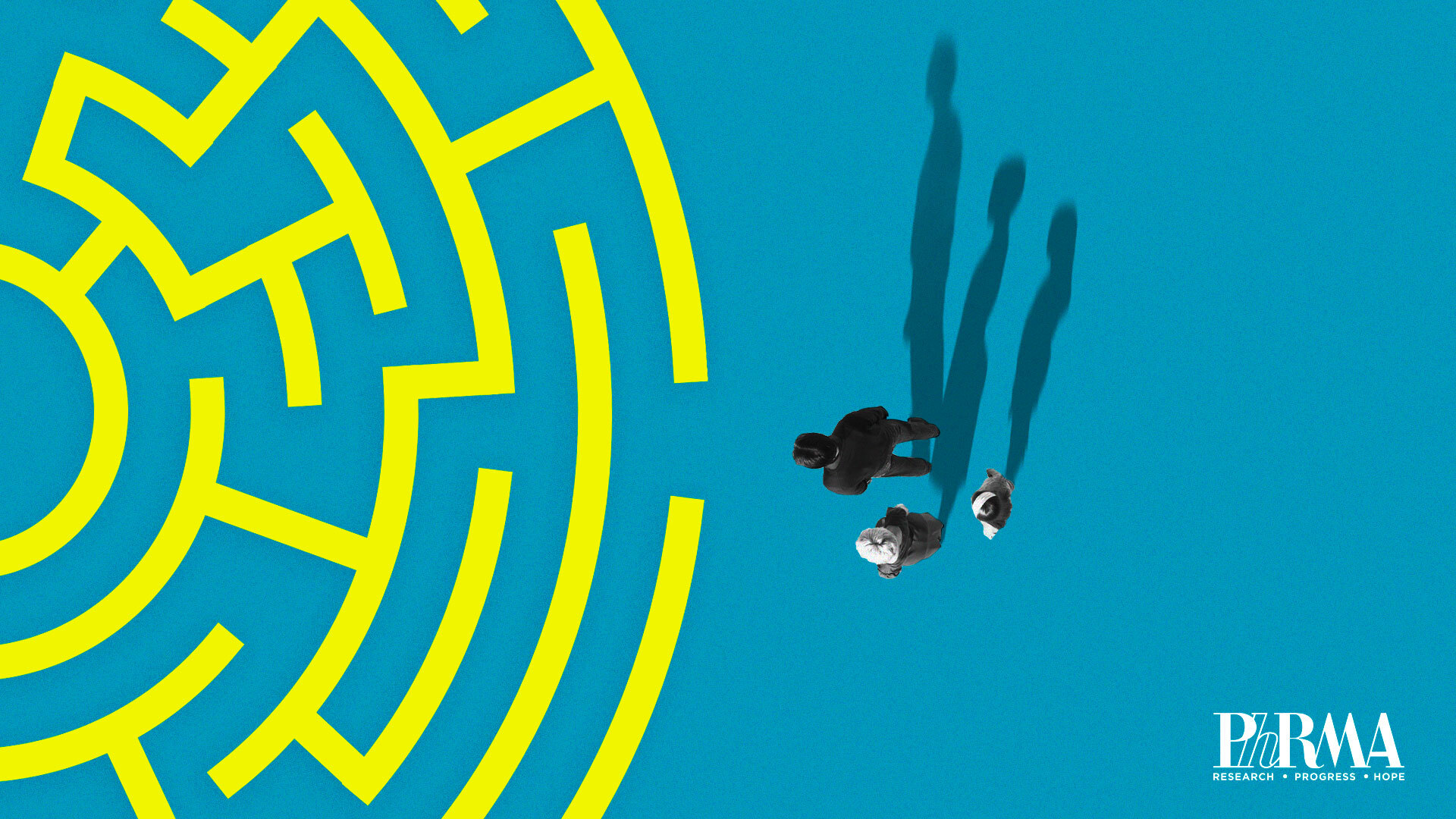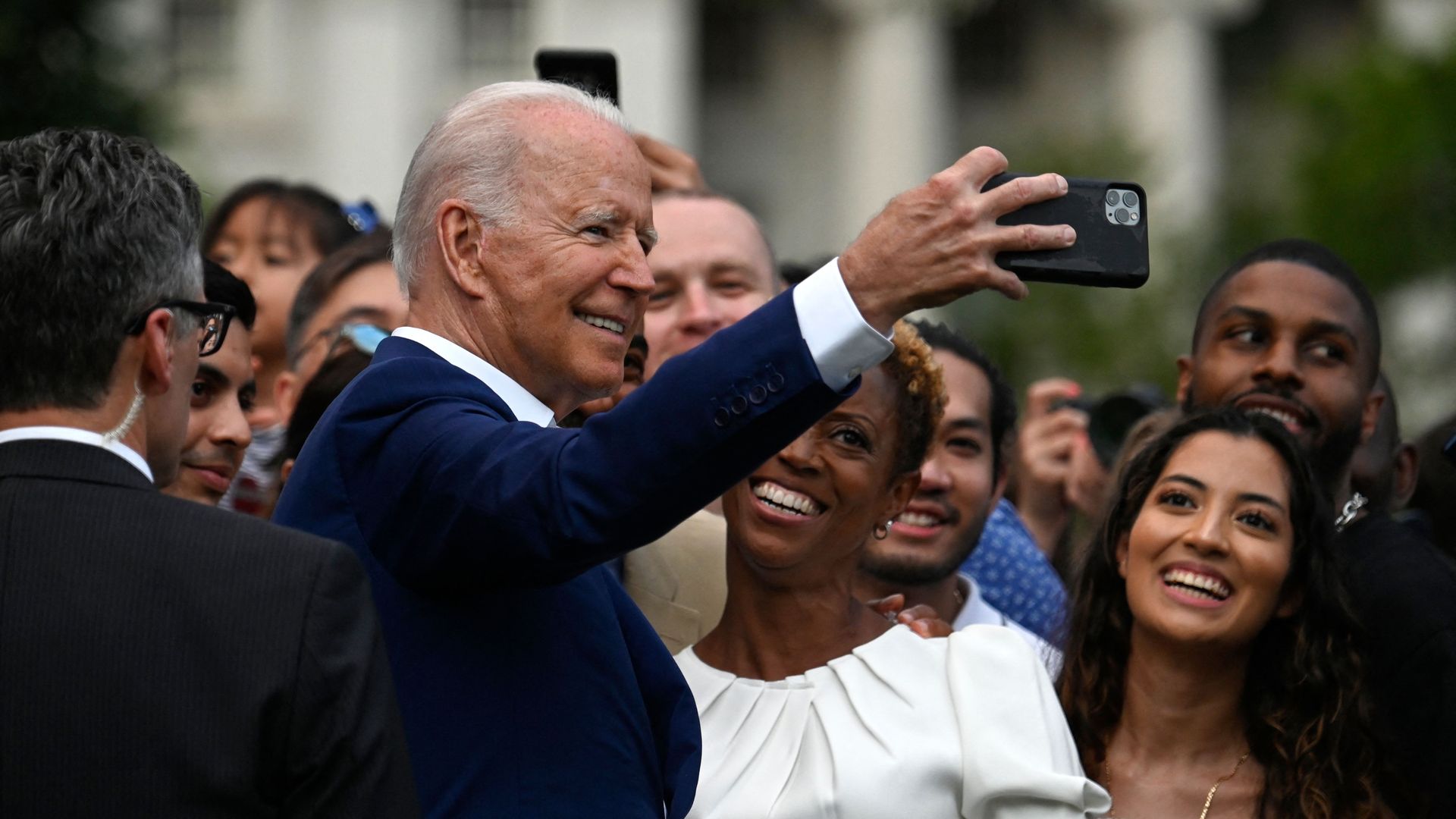Plus: Surprise bills and the consent issue | Tuesday, July 06, 2021
| | | | | | | Presented By PhRMA | | | | Axios Vitals | | By Tina Reed ·Jul 06, 2021 | | 🌞 Good morning and welcome back from the long weekend. Today's newsletter is 734 words, or a 3-minute read. | | | | | | 1 big thing: Aduhelm puts docs in tough spot |  | | | Illustration: Aïda Amer/Axios | | | | The FDA's approval of the unproven Alzheimer's drug Aduhelm has put doctors in a tricky position, Axios' Bob Herman writes. The big picture: Physicians worry that no matter how much they educate people about Aduhelm's unproven benefit, risky side effects and high price, patients will push for the prescription. What they're saying: "The public message has to be clear: This is not a cure, and it's not even clear this is going to make substantial changes to someone's disease course," said Sharon Brangman, an Alzheimer's expert and geriatrician at Upstate University Hospital in New York. Yes, but: Physicians and hospitals will have a major financial incentive to prescribe the drug. - If Medicare covers Aduhelm, it will fall under Medicare Part B.
- Medicare adds a 6% markup for all Part B drugs, which has long created concerns that providers are prescribing higher-priced drugs to get higher add-on fees.
- And since hospitals and private equity firms increasingly own neurology clinics, "health systems could see this as a new opportunity to bring in revenue and start advertising their memory care," said Joseph Ross, a Yale University physician and researcher who has criticized Aduhelm's approval.
Go deeper. |     | | | | | | 2. Providers vs. patients |  | | | Illustration: Sarah Grillo/Axios | | | | Among the new rules in the surprise billing law set to take effect Jan. 1 is a requirement patients give consent before their doctor is allowed to bill them for out-of-network services. Why it matters: This creates a new potential source of tension when it comes to patients being asked to willingly waive protections — and could ultimately pit providers against their patients, writes Axios' Caitlin Owens. The context Last week, the Biden administration released the first set of details on how it will implement last year's law banning surprise medical bills aimed at protecting patients from receiving giant out-of-network bills in most situations. But, but, but: The administration is still trying to figure out what happens if a patient refuses to give consent. - Among the details laid out in the rule includes how medical services should be determined as emergency or non-emergency for surprise billing protections, as well as how to calculate median in-network rates, the Washington Post reported.
- The rules also lay out standard notice policies when it comes to providers letting patients know they're receiving out-of-network care as they seek patient consent. Surprise billing protections do not apply to patients who consent to out-of-network charges.
Therein lies the rub. "This was always designed to preserve patient choice, not to become a massive loophole for surprise billing," Adam Buckalew, founder of ALB Solutions and a former congressional aide who helped write the surprise billing law, told Caitlin. Share this story. |     | | | | | | 3. Surprise bills and childbirth |  | | | Illustration: Aïda Amer/Axios | | | | Speaking of surprise bills, nearly one in five newborn hospitalizations or childbirth deliveries have at least one, Axios' Marisa Fernandez reports from a recent brief in the Journal of the American Medical Association. - These surprise bills are especially common when cesarean delivery or neonatal intensive care services are provided, researchers found.
Why it matters: Childbirth hospitalizations are the most frequent sources of surprise bills in the U.S., though those bills will be banned next year. |     | | | | | | A message from PhRMA | | Out-of-pocket costs don't have to be out-of-this-world confusing | | |  | | | | The way insurance covers your medicine is too complicated. What you pay out of pocket for medicines should be more transparent, more predictable and more affordable. Because the system should work for patients. Not the other way around. Get the facts. | | | | | | 4. 📸 Pic du jour |  | | | President Biden poses for a selfie with guests after delivering a speech during Independence Day celebrations at the White House. Photo: Andrew Caballero-Reynolds/AFP via Getty Images | | | | "We are emerging from the darkness," President Biden told a crowd during Independence Day celebrations at the White House, which included COVID response essential workers, on July 4. - "Think back to where you were a year ago and think about how far we've come from silent streets to crowded parade routes with people waving American flags."
By the numbers: More than 605,000 people have died of COVID-19 in the U.S., including 37 on July 4. There were 261 deaths in the U.S. from COVID on Independence Day in 2020. - The Biden administration fell short of its goal of vaccinating at least 70% of U.S. adults by this weekend. The U.S. reached a 67% vaccination rate.
- 73% of Americans who don't plan to get vaccinated say they believe the risk of the Delta variant is exaggerated, according to a poll by ABC News/the Washington Post.
|     | | | | | | 5. While you were weekending |  | | | Illustration: Aïda Amer/Axios | | | - Pfizer's vaccine has dropped to 64% effectiveness in halting infections as the Delta variant spreads, Israel's Health Ministry said. Haaretz reports that they say the vaccine is still 93% effective in preventing hospitalizations and severe symptoms.
- Meanwhile, Britain announced plans to end requirements for masks and distancing on July 19, Axios' Erin Doherty writes.
- Companies are starting to ditch PBMs in favor of smaller competitors as they seek to eliminate the costs associated with the massive drug-industry middlemen, Insider reports.
|     | | | | | | A message from PhRMA | | Out-of-pocket costs don't have to be out-of-this-world confusing | | |  | | | | The way insurance covers your medicine is too complicated. What you pay out of pocket for medicines should be more transparent, more predictable and more affordable. Because the system should work for patients. Not the other way around. Get the facts. | | |  | | It'll help you deliver employee communications more effectively. | | | | | | Axios thanks our partners for supporting our newsletters. If you're interested in advertising, learn more here.
Sponsorship has no influence on editorial content. Axios, 3100 Clarendon Blvd, Suite 1300, Arlington VA 22201 | | | You received this email because you signed up for newsletters from Axios.
Change your preferences or unsubscribe here. | | | Was this email forwarded to you?
Sign up now to get Axios in your inbox. | | | | Follow Axios on social media:    | | | | | |










No comments:
Post a Comment